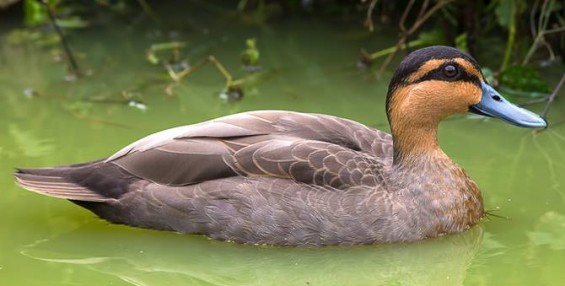The Philippine Duck Project
Beth Roberts, a student from Manchester Metropolitan University, is embarking on a project to discover the distribution, abundance and habitat requirements of the threatened Philippine Duck and other wetland birds. With no published demographic information, the basic ecological requirements of the threatened endemic Philippine Duck is poorly understood. It is protected throughout the Philippines, yet is hunted and as a consequence the population may be in steep decline.
Beth and the project team aim to conduct surveys at as many wetland sites in the Philippines as possible and are currently fund-raising with the aim of raising £6,000 for the project. This will pay for six months of fieldwork, at 15 wetland sites, with two research assistants, two porters, all travel costs and equipment.

Philippine Duck (Photo: Arman Asilo).
The Philippine Duck is an endemic species in the Philippines, listed as vulnerable by BirdLife International because it is undergoing a rapid and continuing decline owing to extensive over-hunting and the widespread conversion of its wetland habitats. It has undergone steep declines since the 1970s, disappearing entirely from many former sites. The causes of the decline are familiar: exceptionally high levels of hunting and trapping, conversion of natural wetlands, mangrove destruction and the recent extensive use of pesticides on rice-fields.
Beth and the project team hope to gather evidence to support better protection of the wetland habitats. Few sites currently have Ramsar designation, the criteria for this designation is that a site should support 1% of a species' population. The more funds the team can raise the more wetland sites in the Philippines they can survey.

Man on Water Buffalo (Photo: Beth Roberts).
An initial exploratory project visit allowed Beth to visit four key wetland areas, two of which are listed as Ramsar sites. Sites visited included the IBA Candaba Marsh at Luzon a site that has also recorded the critically endangered Baer's Pochard (Aythya baeri) and endangered Streaked Reed Warbler (Acrocephalus sorghophilus). The team recorded over 300 Philippine Ducks at this site but also evidence of egg collection from locals astride water buffalo!
The team hope to gather information on other threatened species such as Sarus Crane (Grus antigone) and Spot-billed Pelican (Pelecanus phillipensis) during the visits. With funding, the team hope to conduct a nest protection scheme at Subic Bay in conjunction with the local indigenous tribe and students. This will provide basic information on clutch size, nest density and nest success of the Philippine Duck. They will be training Filipino researchers and students in distance sampling and vegetation survey techniques.
You can help fund The Philippine Duck project by visiting their fund-raising page and making a donation or purchase various 'perks' that will contribute toward funding the project.

